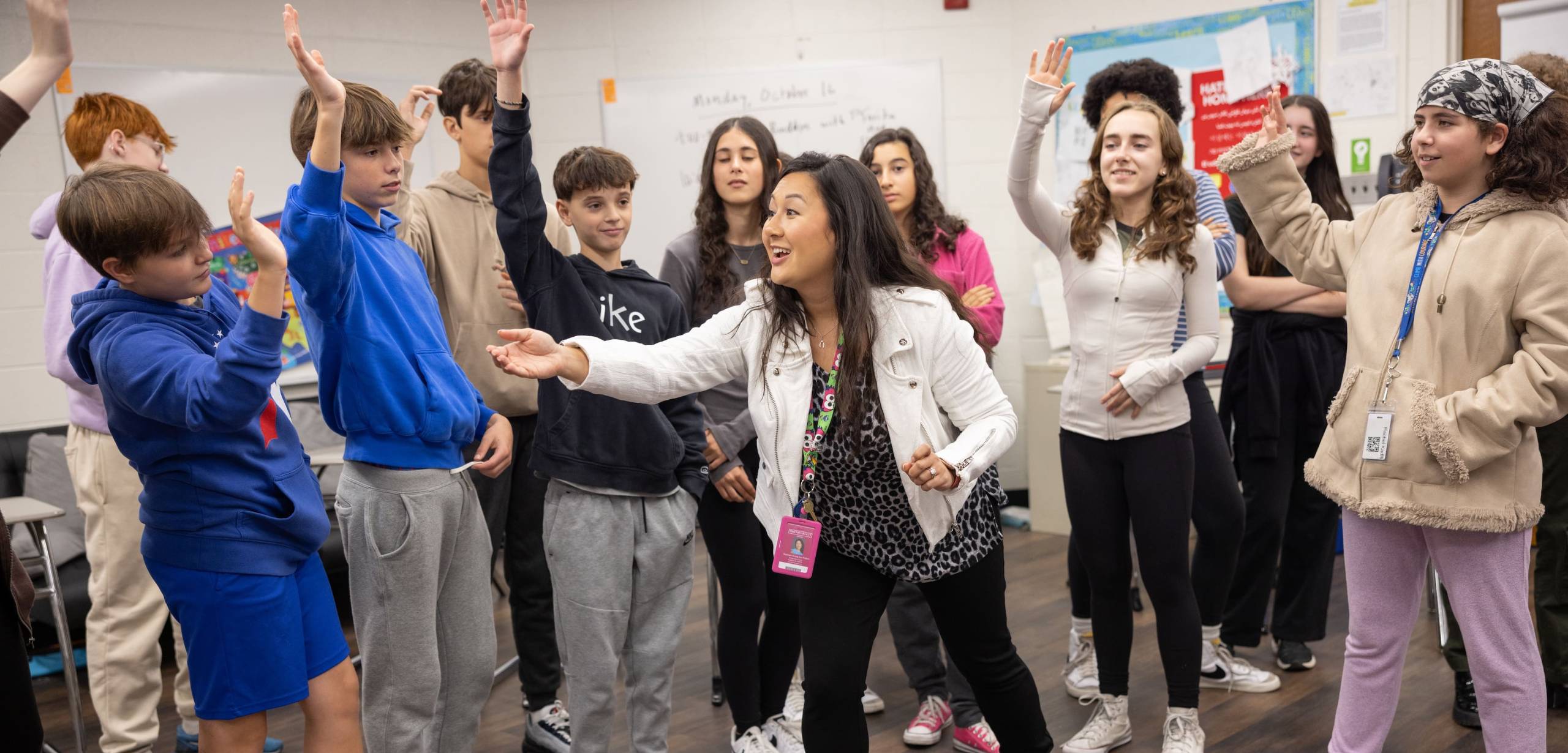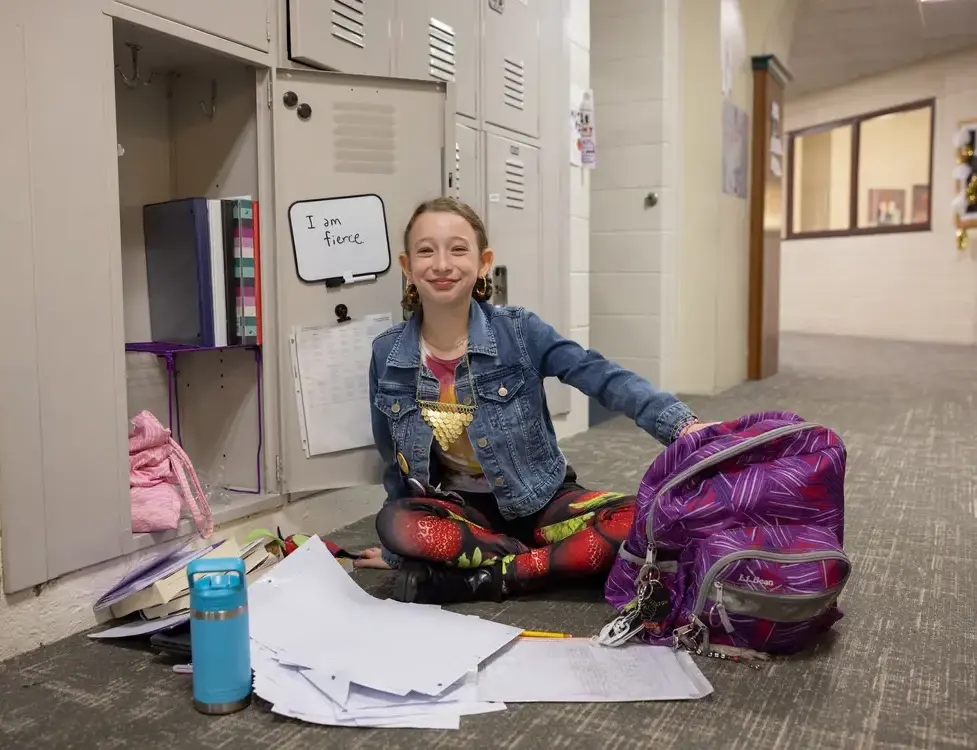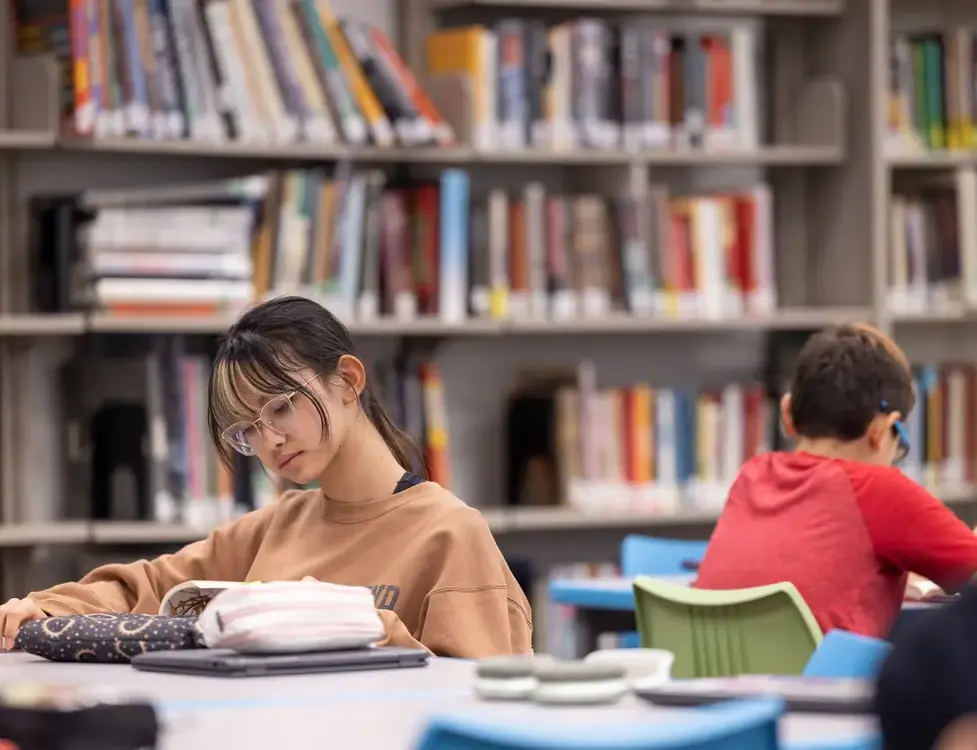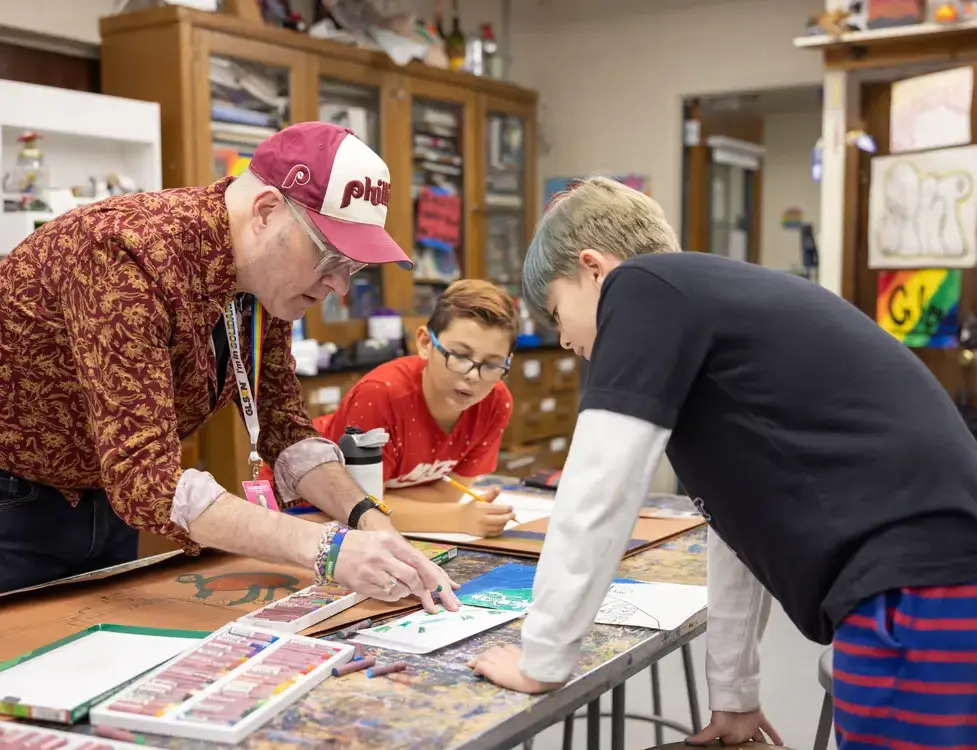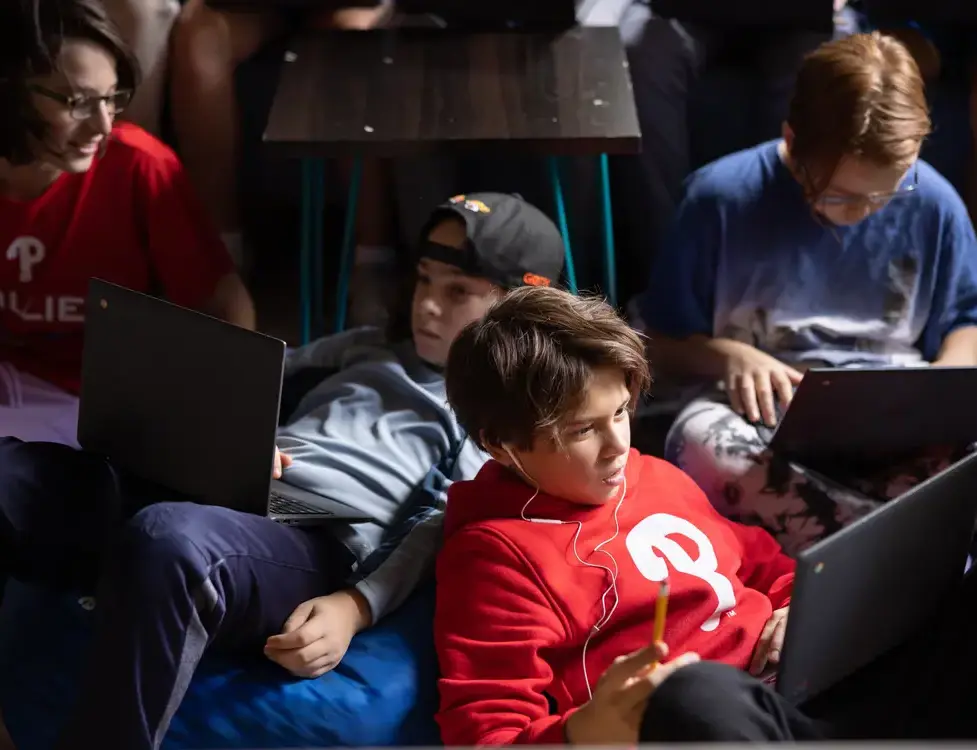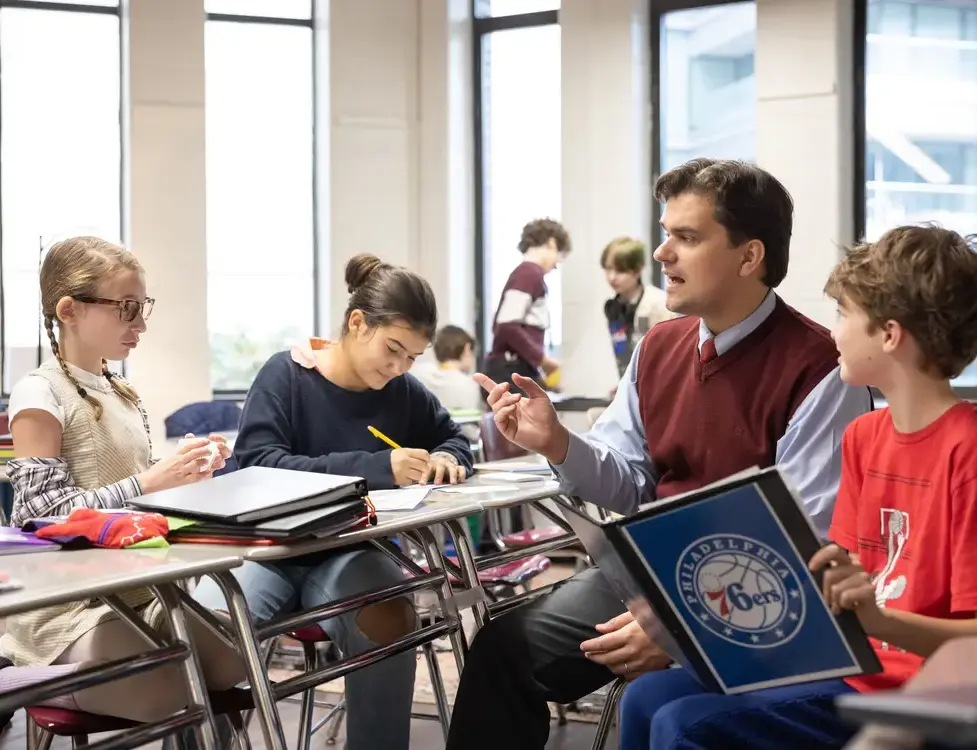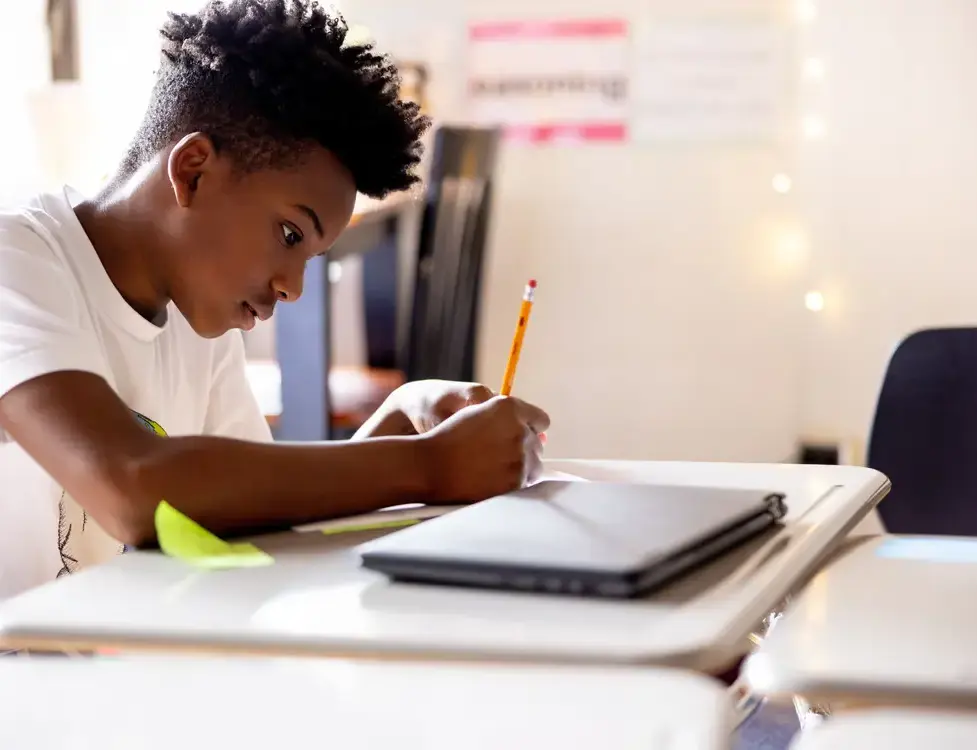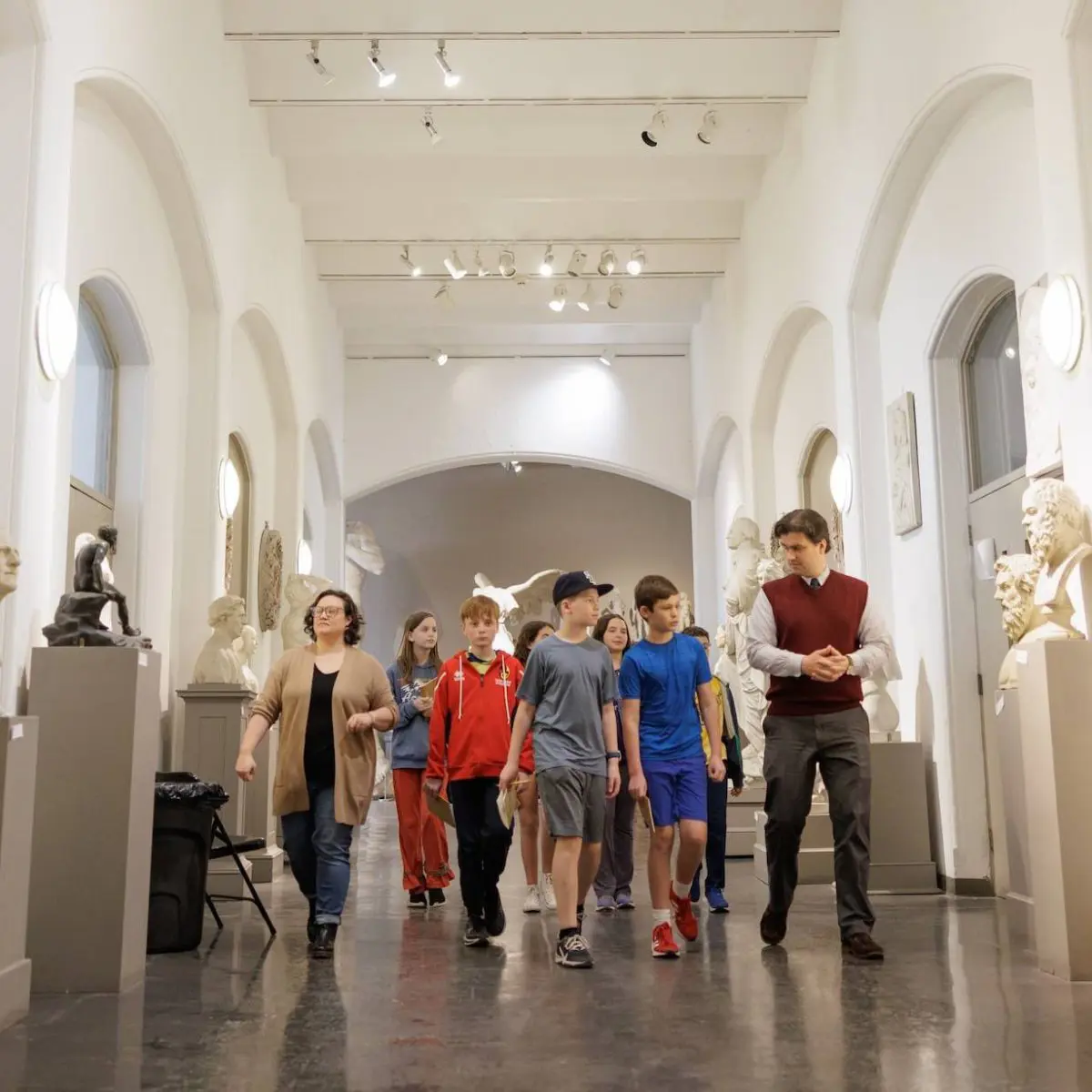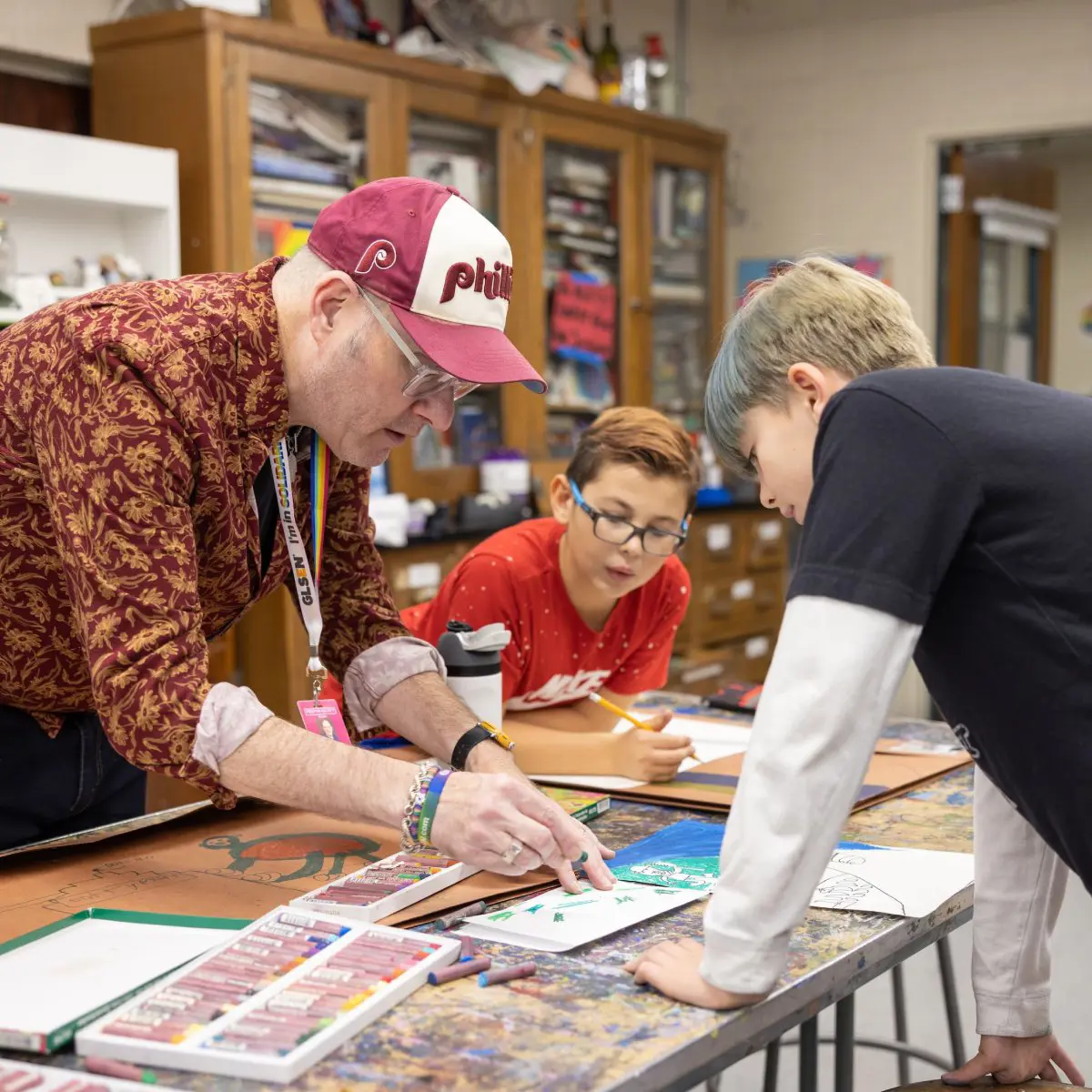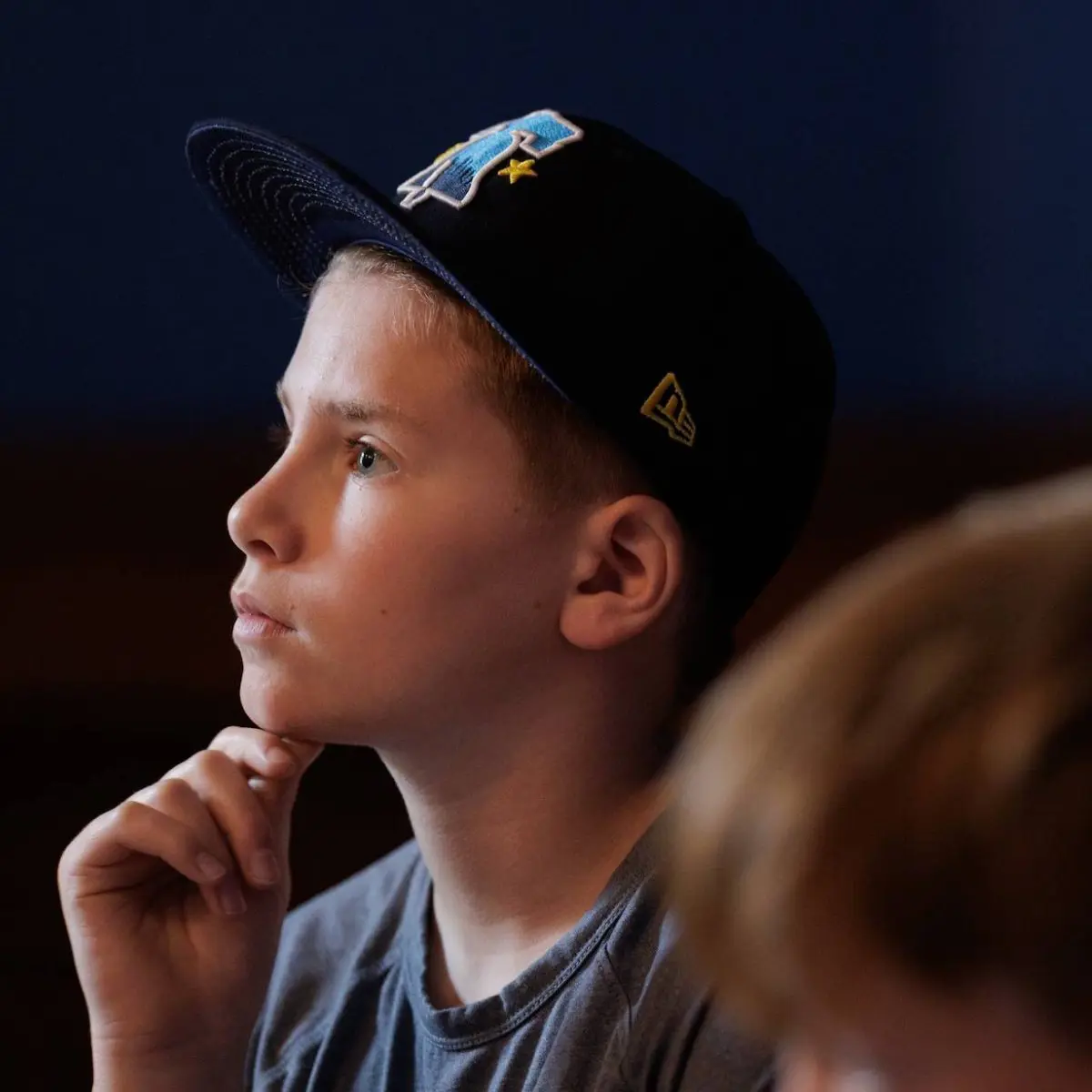While Friends Select’s middle school program features the traditional subjects of English, math, social studies, and science, all students also study art, music, physical education, world language (with a choice of Spanish, Mandarin, or Latin), and a performance elective (with a choice of Drama, Orchestra, Chorus, or Percussion).
An additional course is offered that is specially designed for each grade: Conflict Resolution (fifth grade), Identity and Society (sixth grade), Identity and Religion (seventh grade), and STEAM (eighth grade). Beyond academic courses, students in our middle school engage in a variety of other programs meant to support their growth and development.
| English |
|---|
| The English department believes, as stated in Friends Select’s Mission, that “the aim of education is preparation for the whole of life,” and that central to this vision is “a constant search for truth.” We guide students as individuals to develop their talents and skills as readers, thinkers, and writers, and we also challenge them to have agency and voice. In middle school, students begin to hone their reading and writing skills as they both study texts together and read independently. Through the exploration of a variety of genres, students will analyze, question, interpret, and connect with a diversity of perspectives and experiences. We explore texts as both mirror and window reflections of life experiences and identities. In addition to studying works of literature, our courses explore Philadelphia as a city that offers a rich collection of stories—found in museums and other cultural sites. Writing is always taught as a process that begins with brainstorming and planning, followed by drafting, editing, and revising. |
| History |
| Middle school history students are exposed to the methods, vocabulary, and skills related to the fields of history, geography, and civics. Fifth and sixth grade American History offers students the opportunity to explore the history of the United States with an emphasis on understanding how governments work, the movement of people and ideas, the evolution of cultures, and the development of economic systems. In fifth grade, students study pre-Columbian civilizations, early failed and successful colonies, and the lead-up to the Revolutionary War. In sixth grade, students study the rise of the U.S. into a global empire. By exploring art, primary source materials, and a global-focused textbook, students study U.S. history through a global lens. Seventh and eighth grade World Studies students study 11 regions of the world and make conclusions about why our world looks the way it does currently. In seventh grade World Studies, students explore the physical, cultural, political, and economic geography of Southwest Asia and North Africa, South Asia, and East Asia, with a historical emphasis on Early River Valley civilizations and the development of major religions. In eighth grade, students explore the physical, cultural, political, and economic geography of Europe, sub-Saharan Africa, and Central and South America, with a historical emphasis on Classical to Medieval Era civilizations. |
| Library |
|
Friends Select’s library department is committed to providing a safe, inclusive, and welcoming space for all students, faculty, and staff. Our lower school, middle school, and upper school programs are dedicated to preparing students for the whole of life, by creating a dynamic learning environment that encourages intellectual curiosity, and empowers students to become lifelong learners, avid readers, creators, critical thinkers, and problem solvers. Librarians curate print and digital resources that reflect our school’s DEI and antiracist goals, support research and classroom subjects, and provide students with a wide range of independent reading choices. The library department program includes a variety of activities and learning experiences, including yearly author visits (both in-person and virtual) coding instruction, student-led book clubs, committees, etc. The Ruth Hallowell Gray Library serves students in grades 5 through 12. Sixth grade students meet twice weekly for a research and digital literacy class, which consists of lessons such as website evaluation, coding, database research, news literacy, and efficient library usage. Flexible scheduling for all grades provides an opportunity for collaboration with classroom teachers on research projects, lessons, and author explorations, which can vary by year and semester. The library is an active, engaging, and flexible space that supports quiet study and reading, collaborative work, classes, presentations, and more. Middle school students may come to the library for break and lunch recess or with a class at any time during the school day. Upper school students are able to use the library throughout the day. |
| Math |
|
The mathematics program in Friends Select’s middle school helps students begin to engage in abstract thinking and the development of problem-solving strategies. By solidifying basic operations with real numbers and continued development of problem-solving skills, fifth and sixth grade students develop skills in algebraic thinking necessary for seventh and eighth grade mathematics. Students use online and physical textbooks as well as additional resources to support their learning. Seventh and eighth grade mathematics comprise the algebra program. In seventh grade, pre-algebra students explore basic number theory, properties of real numbers, polynomials, exponents, graphs of linear functions, and basic linear equations. In eighth grade, algebra students concentrate on a deeper level of complexity by simplifying expressions, solving equations, and graphing functions, including quadratics. Students who successfully complete the algebra program by taking an independent study of pre-algebra in sixth grade, take algebra 1 in seventh grade and geometry in eighth grade. Middle school mathematics faculty respond to students who want to explore topics outside the traditional curriculum and to those who want to accelerate through the sequence. Faculty help students make connections between classroom concepts and how they relate to everyday life. Projects and activities may focus on developing a business or going to a store to compare prices in order to assess the complexity of our economy. |
| Physical Education and Health |
|
Physical education is vital, as study after study shows a strong correlation between physical activity and overall school success. According to the Centers for Disease Control and Prevention, “physical activity can impact cognitive skills and attitudes and academic behavior, all of which are important components of improved academic performance.” In addition to components of health-related fitness and sport-specific skills, middle school students learn to identify relationships between positions in various sports. They learn to use offensive and defensive strategies to be successful. Students focus on proper shooting, passing, and receiving techniques for multiple games. They also work to display responsible personal and social behavior that respects self and others in physical activity settings. Friends Select’s health education curriculum provides all students with the skills and knowledge to promote responsible lifetime decision-making and contribute to a healthy and safe society. The intent of our program is to motivate students to improve their health (physical/mental/emotional), prevent disease, and avoid or reduce health-related risk behaviors. Middle school health education is a course that introduces students to the basic concepts of health and wellness. Students explore many topics and the factors that influence their health and wellness so that they can make health-literate decisions regarding living a healthier life. |
| Science |
| The science department strives to nurture students’ inherent curiosity, provide students with opportunities to develop and answer questions about the natural and human-made world, and inspire students to be creative problem solvers, informed global citizens, and lifelong learners. The middle school science program guides students to develop their understanding of the sciences through careful observation, experimentation, and the use of technology and research. In our fifth grade Science of the City course, students take a unique look at our city of Philadelphia with a scientific lens, focusing on its physical, life, and earth science features. In sixth grade’s Science of the Environment, students are challenged to investigate their footprint on the planet as they study topics like plant biology, matter, energy, and ecology. In Science of Life, our seventh graders take a deeper dive into the biological principles of science, from cell biology to organisms to evolution. In our eighth grade Science of the Earth, students deepen their understanding of the principles of chemistry and physics by applying them to key earth science issues, including global water availability and climate change. |
| World Languages |
| In Friends Select’s middle school, the world languages department offers instruction in the two languages that have, in addition to English, the widest cultural and economic reach in the 21st-century globe, Mandarin and Spanish, and a language that has one of the longest and richest intellectual traditions in world history, Latin. All three languages hold classes twice a week in fifth and sixth grade, and four times a week in seventh and eighth grade. Mandarin and Spanish focus on the active command of these languages in everyday life, and on cultural traditions, stories, and current events in the Hispanophone and Sinophone worlds. Language acquisition in the Latin curriculum is focused on the ability to translate texts that have either been influential in the history of ideas or those that provide a historical mirror which allows students to question and challenge the societal assumptions of the world around them. Students are exposed to a survey of both canonical and understudied Latin texts from ancient, medieval, and early modern times. Each of our three curricula is cumulative and incremental, and the rigor and linguistic complexity increase with every grade, as do the discussions about the cultural implications of the information that the students are exposed to in each language. |

